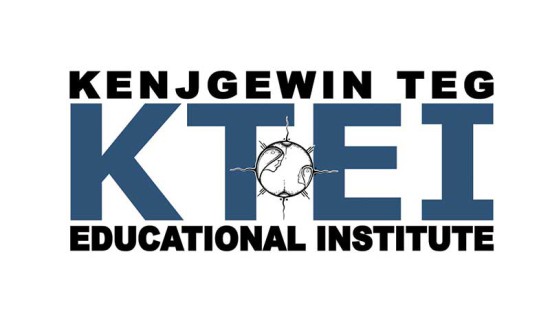MANITOULIN—Time is fast running out for residential school survivors and their families to take advantage of one of the most innovative aspects of the healing process that came out of the residential school reconciliation efforts of the Canadian government.
As part of the healing and reconciliation process, funds that were left over from the Indian Residential School Settlement Program were set aside to be allocated to survivors as personal credits, to be used for educational healing programs.
In accordance with the Indian Residential Schools Settlement Agreement, the Canadian government placed $1.9 billion into a trust fund to be allocated to those who received Common Experience Payments (CEP). After the CEP application deadline passed, an audit was conducted to determine if there are excess funds. Those excess funds were proportionally distributed to all those who received a CEP. Through the program, each eligible person may receive a maximum of $3,000. Those funds are being distributed in the form of personal credits.
The personal credits have no cash value and can only be redeemed at designated educational institutions. But personal credits can be redeemed by an individual, transferred to a family member or pooled together with other peoples’ personal credits and redeemed at one educational institution for group education service.
“At KTEI, examples of current programs in which eligible persons can use these personal credits, can be: Mnidoo Mnising Anishinabek Kinomaage Gamig, the early learning Kindergarten Immersion School; Mnidoo Mnising Language Nest, an immersion language nest for three-year-olds; and Anishinabemowin Immersion Program, which is a post-secondary certificate program for adult learners,” explained Beverley Roy-Carter, director of business and training at Kenjgewin Teg Educational Institute, who pointed out that there are other educational and cultural institutions, such as the Ojibwe Cultural Foundation and the United Chiefs and Councils of Mnidoo Mnising, that qualify for the assignment of personal credits.
“The credits will cover a majority of the tuition costs. There are other group learning activities and we can work with recipients to determine or learn more about other programs/activities that they are interested in.”
“To date, we have received some general interest from grandparents who have indicated and have begun the paperwork to assign their credits to the MMAK immersion school already,” said Ms. Roy-Carter. “By assigning credits to KTEI, this is a great help to help cover immersion school programming and additional operating costs for the children to receive the best immersion learning experience possible.”
All CEP recipients should have received the application forms from the government last January, noted Agnes Kanasawe, resolution health support worker at Noojmowin Teg. Ms. Kanasawe assists those applying for the personal credit program in filling out the necessary forms. She noted that there has not been a huge uptake in the program locally.
“We held an information session about the program in Little Current,” said Ms. Kanasawe, “but there were not a lot who attended.”
Some of the challenges with the program include people who may have changed addresses since the CEP program and the difficulty facing grandparents with multiple grandchildren, she suggested. “I think some grandparents are concerned about providing the credit to one grandchild and not another,” she said. It is a difficult decision to make and some people may choose to simply not apply to avoid having to make that choice. “They want to be fair to all their grandchildren.”
If a person has not received their personal credit form and they believe they are entitled to receive them, Ms. Kanasawe noted that there is a toll free number (866-343-1858) and a website (www.residentialschoolsettlement.ca) that they can contact for further information.
Time is of the essence, however, as a number of important deadlines are drawing close. A Personal Credits Acknowledgement Form must be postmarked by October 31, 2014 to qualify. The deadline for ‘Education Entity or Group’ submissions for Personal Credits Redemption Forms must be postmarked by December 1, 2014. After December 1, 2014 all inactive files will be closed. In addition, the educational service to which personal credits are being applied must be completed by April 30, 2015 and that presents another challenge as the grains run through the hourglass.
“Many of our post secondary school programs enrollment deadlines have passed,” noted Ms. Roy-Carter, “but it is a good idea for people to call and connect with us to determine what other programs we have that might be suitable.”
Once the personal credits have been distributed, any amount remaining in the trust fund on January 1, 2015 is to be paid to the National Indian Brotherhood Trust Fund and the Inuvialuit Education Foundation to be used for educational programs.





